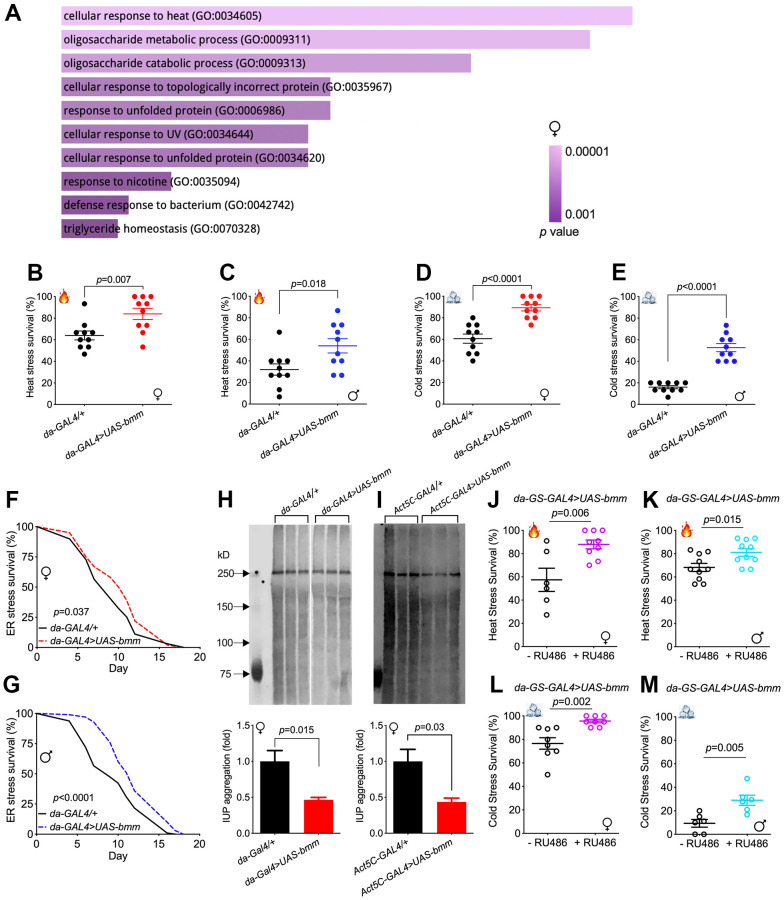Figure 3.
bmm overexpression enhances stress resistance and improves protein homeostasis. (A) Gene ontology enrichment analysis using FlyEnrichr identified the top 10 significantly enriched biological processes for the total DEGs identified in RNA-seq analysis for female da-GAL4/+ vs. da-GAL4>UAS-bmm flies, ranked by p value. The length of the bar represents the significance of the corresponding specific biological process. (B, C) Heat stress resistance test in da-GAL4/+ vs. da-GAL4>UAS-bmm flies. (D, E) Cold stress tolerance test in da-GAL4/+ vs. da-GAL4>UAS-bmm flies. Data are shown as mean±SEM and analyzed by two-tailed Student t-test in (B–E). n=150 for each group. (F, G) The survival curves upon tunicamycin-induced ER stress of da-GAL4/+ vs. da-GAL4>UAS-bmm flies. n=97-100 for each group and p value was determined by log-rank test. (H, I) Insoluble ubiquitinated protein (IUP) aggregation measurements by Western blotting in old female control vs. bmm overexpression flies at 35 to 40 days of age. n=3-6 replicates for each group, and each replicate protein was extracted from 10 flies. Samples in (H) were run on the same blot with the middle lanes of unrelated treatment groups cropped out. Data are shown as mean±SEM and statistical analysis was carried out by two-tailed Student t-test. (J, K) Heat stress resistance test in inducible da-GS-GAL4>UAS-bmm flies with or without RU486 induction. n=64-139 for each group. (L, M) Cold stress tolerance test in inducible da-GS-GAL4>UAS-bmm flies with or without RU486 induction. n=104-160 for each group. Data are shown as mean±SEM and analyzed by two-tailed Student t-test in (H–M). See also Supplementary Figures 3, 4.

